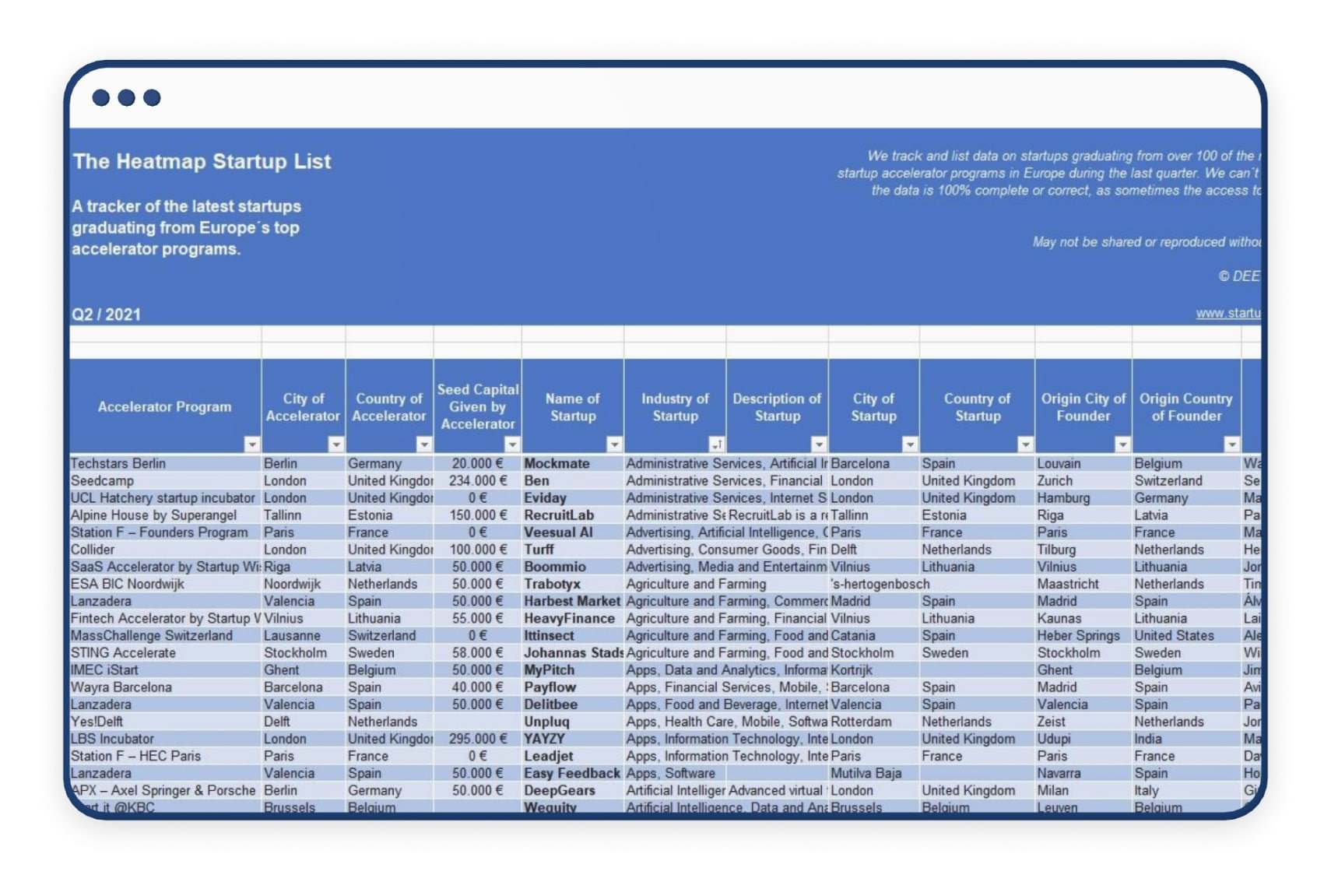The 10 best startup databases in Europe
10. The Hub.io
The hub.io by Danske Bank is actually a startup job platform, but it also offers a formidable overview of startups in the Nordics. The many filter options allow to identify startups from Sweden, Finland, Norway and Denmark. You can search by industry, stage, funding status and also their focus on impact. The detailed search gives you a breakdown of the most interesting Nordic sustainability startups by SDG focus. At the time of writing the hub.io had 4,346 startups listed. The database is completely free of charge and can be used without login. Startups from the Nordics can list their own ventures as well as job openings for free too.
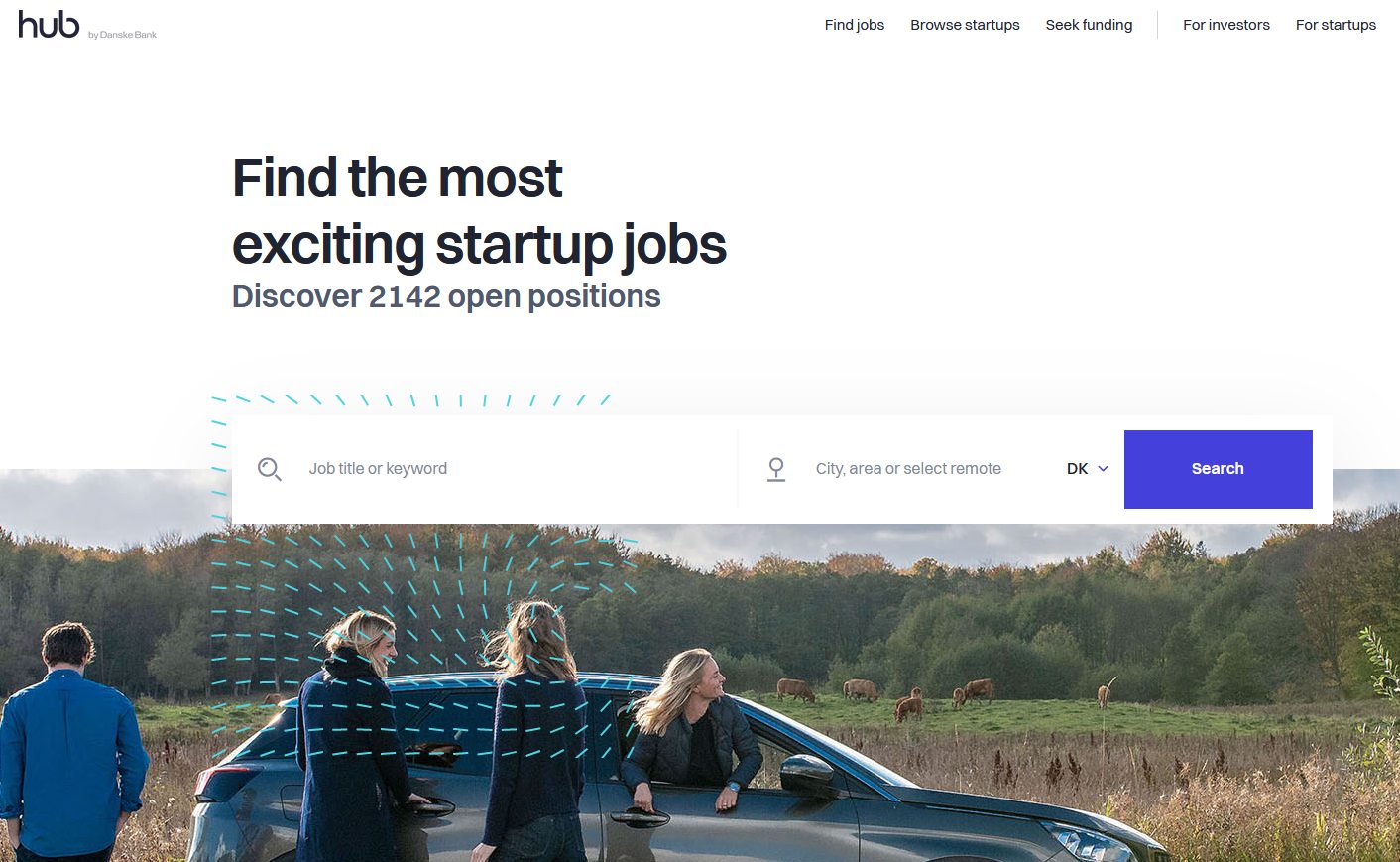
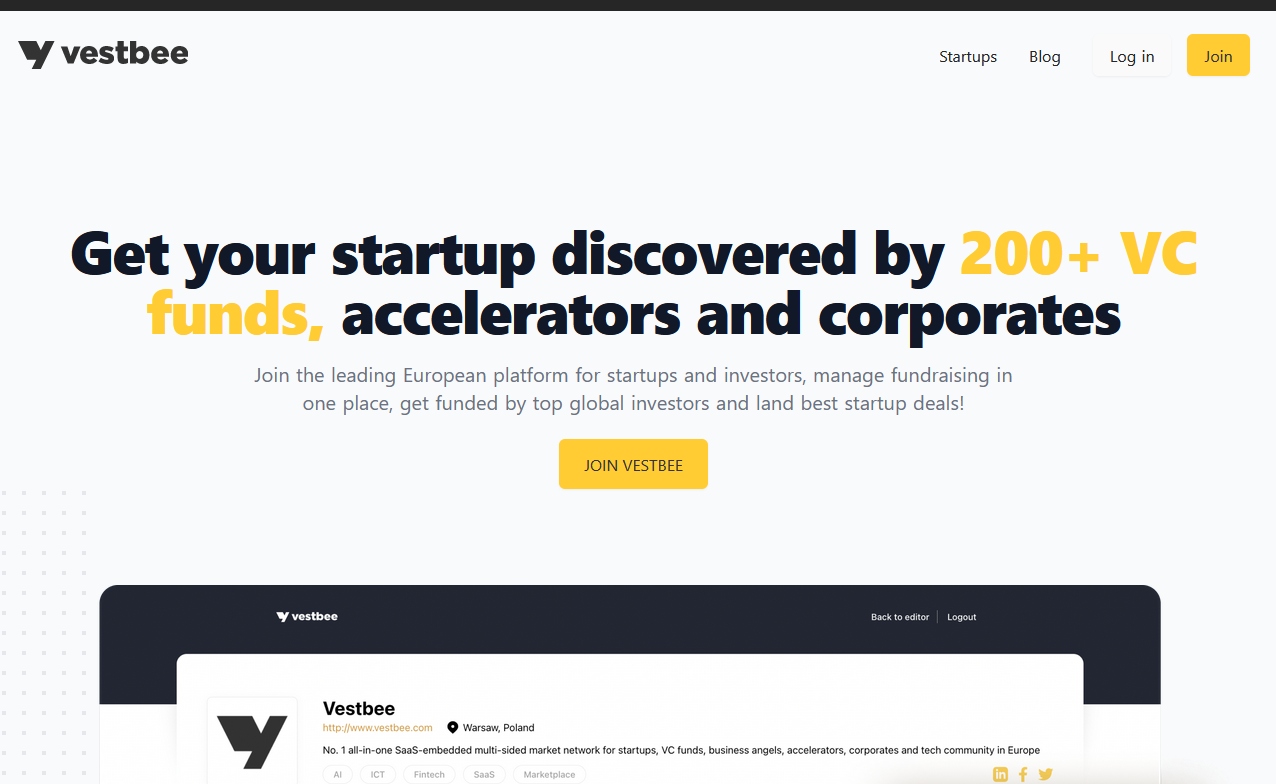
9. Vestbee
The platform is application-based and startups need to apply to be allowed inside. Corporates can run challenges inside the platform against a fee and invite startups from the platform to apply.
8. Craft.co
Craft.co is a powerful database that allows you to track performance indicators of fast-growing startups. The database tracks revenue and profits as well as investments and employee data. Find the headquarters of unicorns and list all key managers at the most successful companies in the world.
The business model behind the database is to provide corporates intelligence on new suppliers and get transparency on new startups. But if you are looking for reliable data on startups, especially if you need to understand revenue and other growth metrics, craft.co is a good and free alternative.
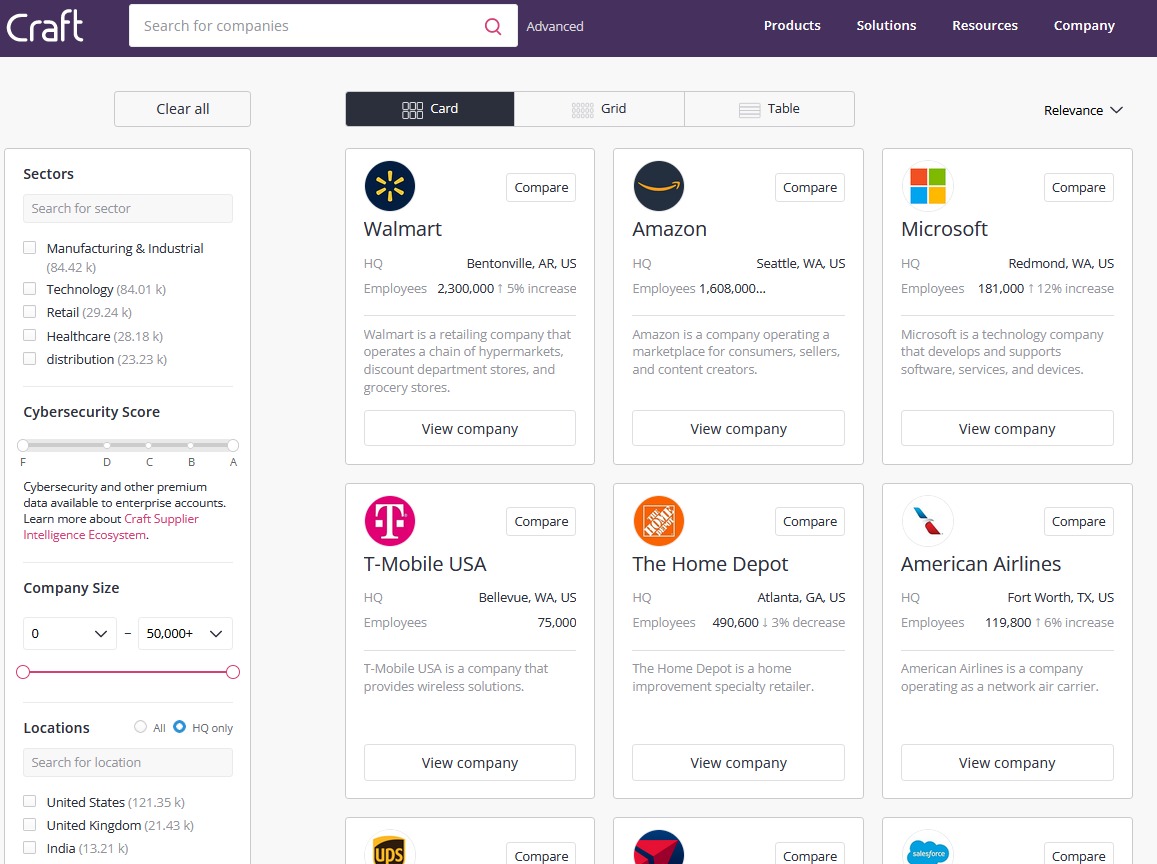
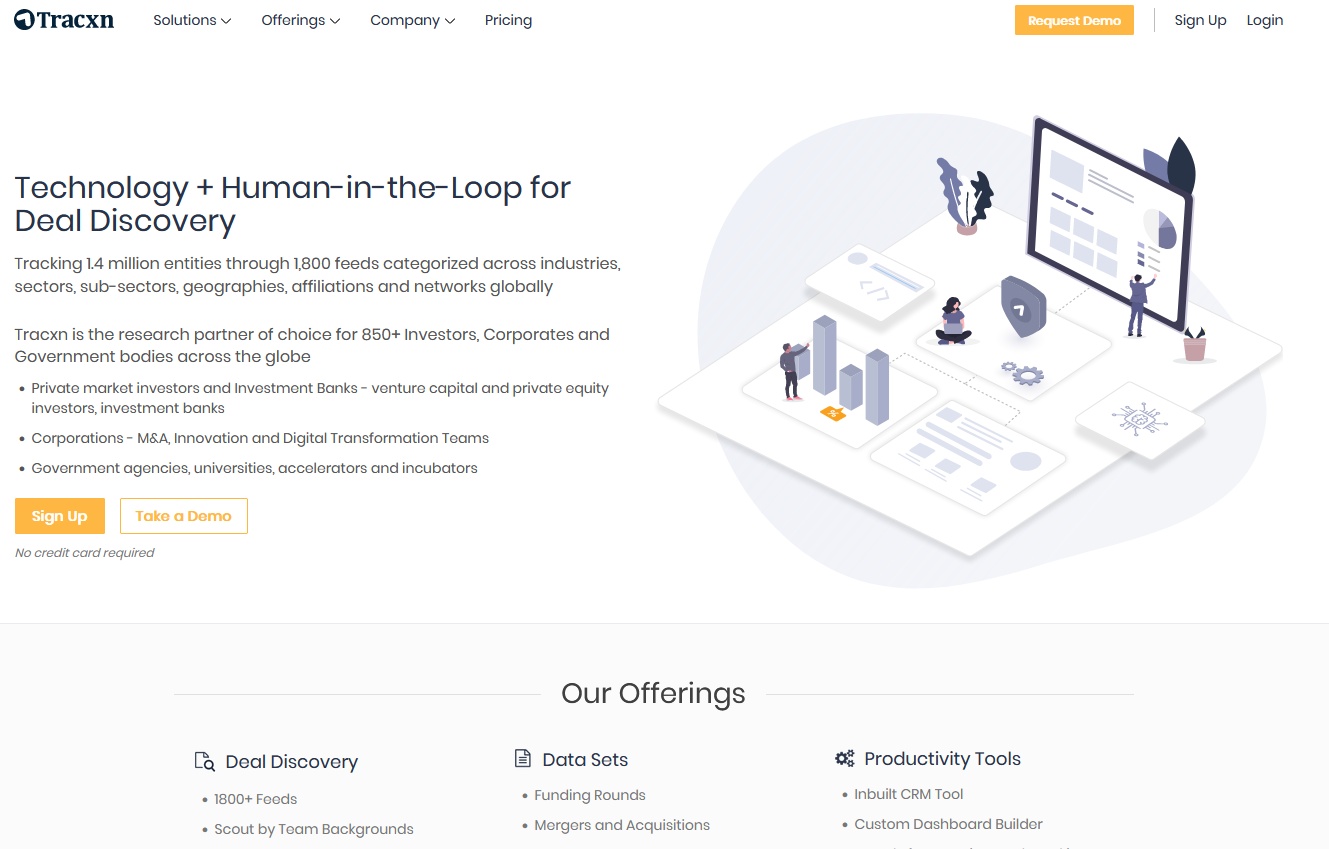
7. Tracxn
Potential use cases are the scouting of new companies showing up on local events, joining accelerators or raising funding. You can create feeds by geography, sectors and verticals or investment interest. The pricing starts at $600 / month for a single user. There is however a free access for the company database that can be obtained after providing a company email address.
6. Startup Heatmap List
The Startup Heatmap List was created out of the need to monitor market trends in early-stage investing. The idea is as simple as powerful: We list every startup selected by one of the top 100 accelerators and incubators in Europe. This includes leading programs like Seedcamp and Station F but also university incubators at Oxford, KTH Stockholm or TU Munich. The more than 9,000 startups tracked until today have already raised more than 2bn USD in investments and produced several unicorns.
With the focusd approach on the very best early-stage teams, the Startup Heatmap List is both fast and reliable and often beats other databases in terms of speed and accuracy.
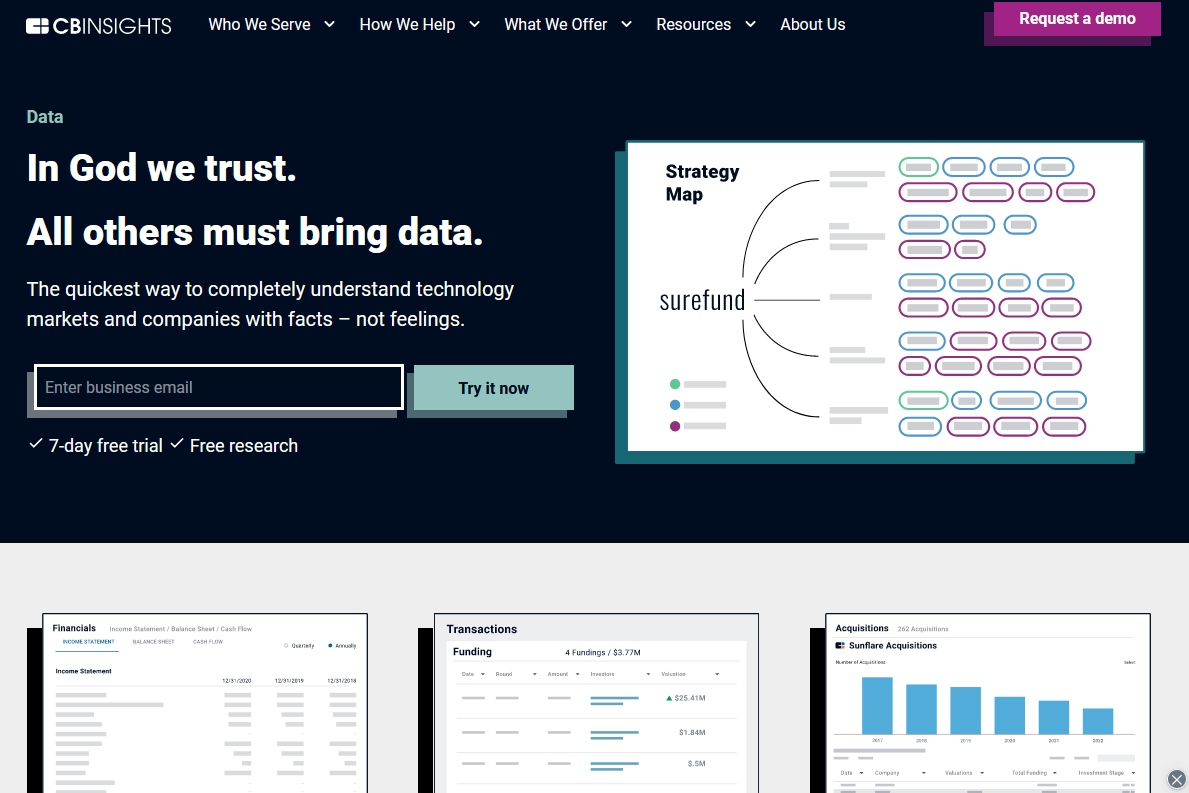
5. CBinsights
The backbone of the technology platform is a powerful database of startup financing rounds, valuations, technology stacks as well as exits. CBinsights has additional data on patents, management teams, earnings and market size.
4. Dealroom
While Dealroom has offered wideranging free access to its data until 2022, it has started to limit data access to 5 results recently. For Dealroom it means they plan to close the gap to the higher quality premium databases and also increase their accuracy of location and industry tags, which had been a bit underdeveloped in the past. With a price tag of 7,500 € per year Dealroom positions at the lower range of the premium database segment. It mainly caters to the needs of Series A stage investors, high growth startups on the search for VC money as well as public authorities.
Also, Dealroom has put some focus on the analysis of ecosystems with additional functionality in their database. In the set of features there is the possibility to get regional comparisons in a table and on a timeline, which for example Crunchbase does not provide.

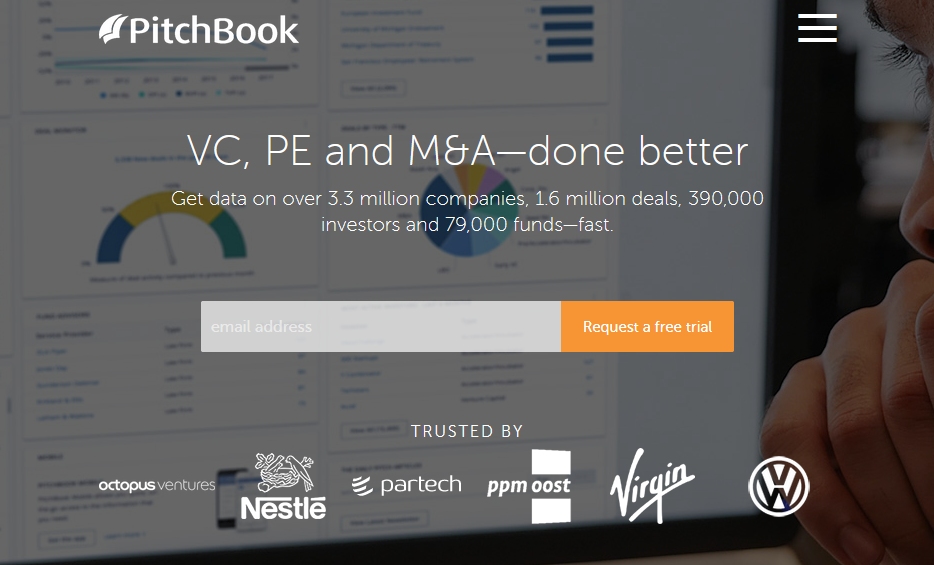
3. Pitchbook
However, early-stage investors or accelerators might find PitchBook both a bit expensive (a license can easily cost 20k USD per year) and incomplete. With the focus on VC transactions, PitchBook covers fewer information at the fast-moving pre-seed stage.
2. Bureau van Dijk – Orbis M&A
With a premium price tag in the tens of thousand Euros per license as well as the backbone of one of the largest and most successful business data providers, Orbis has the resources available to deliver top of the class data. While some years ago traditional business data provider Bureau van Dijk was neglecting the startup world, they have quickly caught up. Today it offers the best available data in the industry.
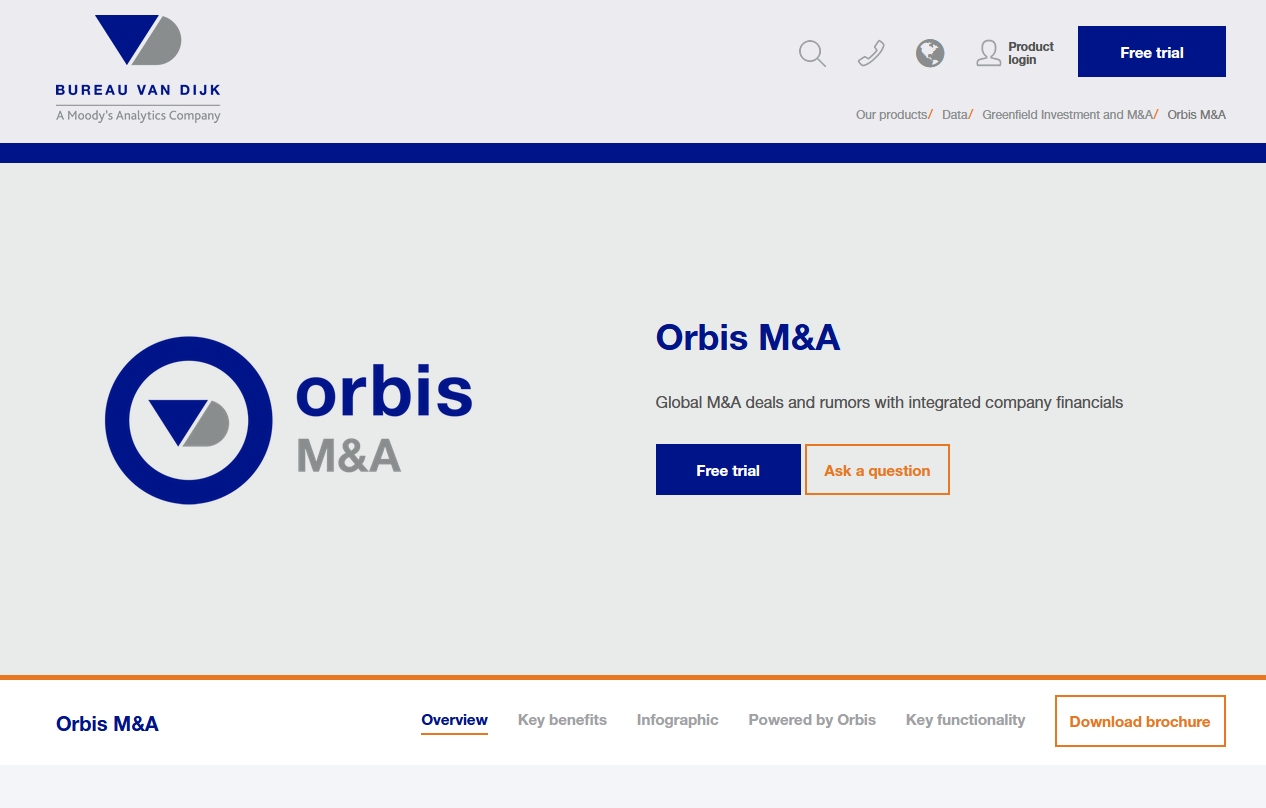
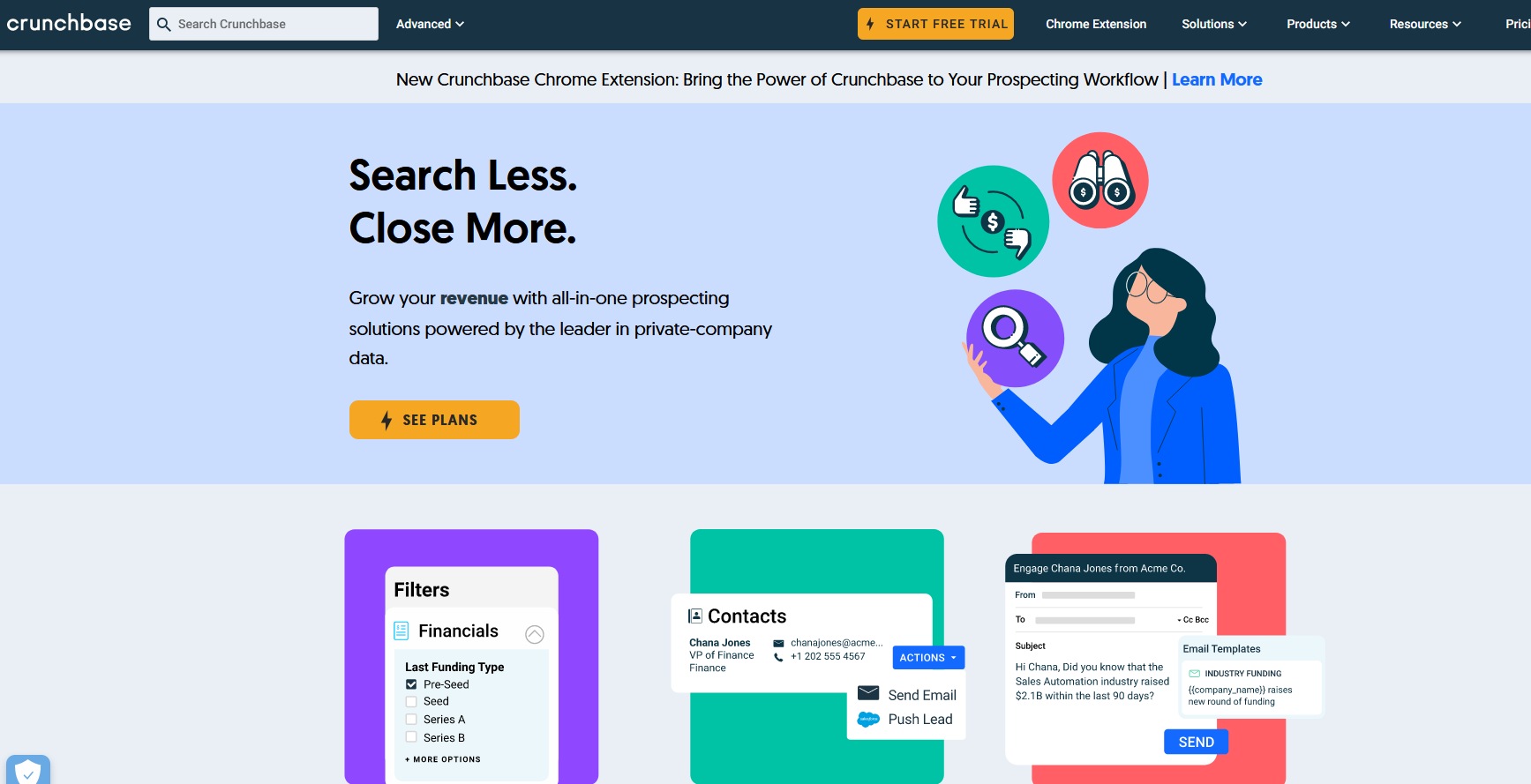
1. Crunchbase
Still, Crunchbase has remained a top source at an unbeatable price tag. With just above 320 USD per year, the US-based database is the most affordable and most complete dataset available. It heavily relies on webscraping from social media and press to identify new startups, founder profiles, investments and exits. Additionally information is crowdsourced and complemented by startups, who make sure to update their Crunchbase profiles when looking for investments.
While the data is maintained mostly automatically, the highly flexible search engine allows users to create personalized filters, weeding out mismatches easily. This transparency is powered by one of the most well kept industry tag libraries. Also in terms of geography, Crunchbase beats other databases with a high accuracy on both city and regional level. All in all, no other database offers such a good quality of data on worldwide scale at such a price.

